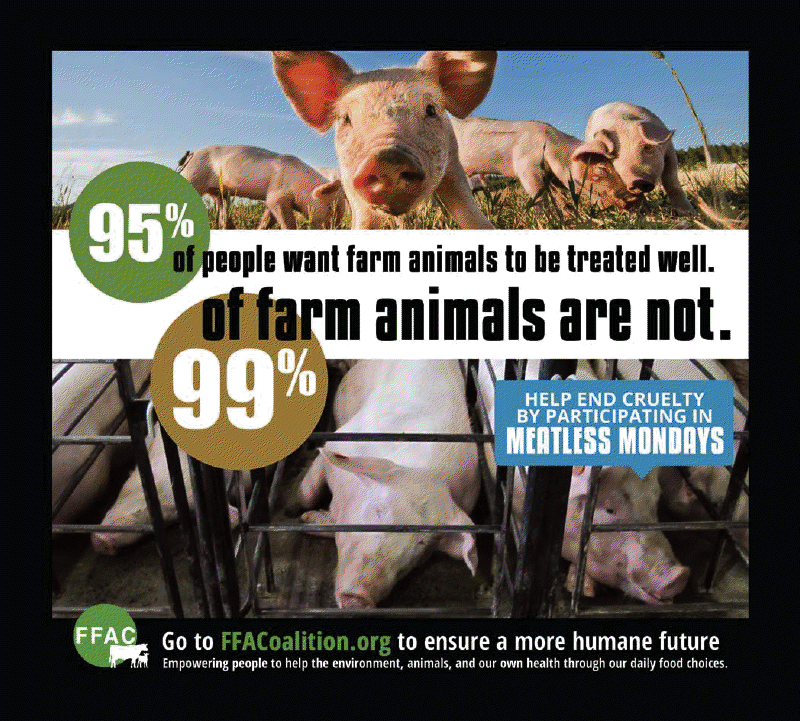The sun breaks over the horizon, casting a soft glow on a vast expanse of green pastures, where animals should be frolicking freely. Yet, for countless creatures raised for human consumption, this idyllic image is often nothing more than a distant fantasy. The juxtaposition between the idyllic vision of farm life and the grim reality of industrial animal farming paints a poignant picture of the urgency to act against animal cruelty in the food industry. Each of us carries the potential to catalyze change, to infuse compassion into our daily choices. So, how can we contribute to this vital cause and help end animal cruelty in the food industry? Here are tangible steps each of us can take, beginning today.
Firstly, one of the most powerful actions an individual can undertake is to reassess their dietary choices. Adopting a plant-based diet can be seen as a revolution of one’s plate, transforming it from a battleground of suffering to a canvas of cruelty-free sustenance. Each meal teeters on the brink of transformation; an array of colorful vegetables, grains, and legumes offers a rich tapestry of taste that echoes the sentiment of nurturing life rather than extinguishing it. With each turn to cruelty-free options, we are not merely satiating our appetite—we are casting a vote against an industry rife with exploitation.
Furthermore, understanding the intricate workings of the food industry is essential. The labyrinthine journey from farm to table is often shrouded in secrecy, and one must peel back these layers to uncover the truth. Familiarize yourself with factory farming practices, which prioritize profit over the welfare of sentient beings. It is within these sterile environments that animals live stripped of their natural instincts and freedoms, reduced to mere numbers in a system built on consumption. By educating ourselves about the ethical implications of meat, egg, and dairy production, we can cultivate a deeper empathy for those who suffer in silence.
Engagement with local farming communities provides another avenue to mitigate cruelty. Seek out farms that embrace humane treatment and sustainable practices. Here, animals are often treated with the dignity they deserve, allowed space to roam, and engage in natural behaviors. Visiting these farms can provide firsthand insight into ethical animal husbandry, reinforcing our connection to food sources. This experience transforms how we perceive and value animals—ernoting them as companions in the intricate web of life rather than mere commodities.
Advocacy emerges as another vital tool in fighting animal cruelty. Leveraging social media platforms and community forums amplifies awareness about the ethical concerns surrounding industrial farming. Share articles, engage in discussions, and showcase alternatives. Initiate dialogues that confront the discomfort surrounding these issues; dialogue can act as a bridge, connecting disparate thoughts and fostering a community rooted in compassion. Organizing local events, such as plant-based potlucks or educational seminars, can inspire others to join the movement towards a more humane food system.
In tandem with advocacy, supporting organizations dedicated to animal rights is crucial. Contributions, whether financial or voluntary, can help these entities continue their invaluable work in raising awareness and exposing abuses in the food industry. Many shelters and sanctuaries provide refuge to animals rescued from cruelty, offering them a chance at a fulfilling life. By supporting these sanctuaries, we acknowledge the sanctity of each life and mirror our commitment to non-violence.
One cannot overlook the significance of informed consumerism as a potent means of combating animal cruelty. Investigating labels and engaging with brands that prioritize ethical practices allows consumers to make choices aligned with their values. Certifications—such as ‘Certified Humane’ or ‘Animal Welfare Approved’—serve as markers of accountability, assuring consumers that their choices are not complicit in suffering. By choosing to purchase products from responsible companies, we encourage a shift towards ethical practices in the industry.
Moreover, implementing advocacy at legislative levels can yield far-reaching impacts. Engaging with local representatives to discuss animal welfare laws can catalyze systemic change. Urging policymakers to enforce stricter regulations against inhumane practices can interject a formidable force against cruelty. For instance, campaigns advocating for the elimination of battery cages and gestation crates have shown how unified voices can lead to substantial reforms.
Mentoring younger generations in understanding the importance of compassion toward animals is also instrumental. Educate children about empathy through stories, films, or hands-on experiences with animals. Instilling these values early breeds a culture of kindness and responsibility. The more one understands the interconnectedness of all living beings, the less likely they are to contribute to cycles of violence.
Finally, practice self-reflection and encourage mindfulness in decision-making regarding food and consumption. Acknowledging the ethical implications of our choices fosters a profound connection to the food we consume. Maintaining gratitude for the life that nourishes us, whether from plants or ethically sourced animal products, highlights the delicate balance we must sustain with nature. This renewed awareness can ignite a passion for activism, turning a simple act of eating into a conscious practice of compassion.
In conclusion, we wield the power to illuminate the shadows of the food industry with conscientious choices, advocacy, and education. Each step we take propels us farther away from a world steeped in cruelty and toward a sanctuary where all beings can coexist peacefully. The movement towards ending animal cruelty is not a solitary journey but a collective tapestry woven from a multitude of compassionate choices. Let us each commit to being threads in that fabric, ensuring that the future we weave is one of care, respect, and dignity for all sentient creatures.








